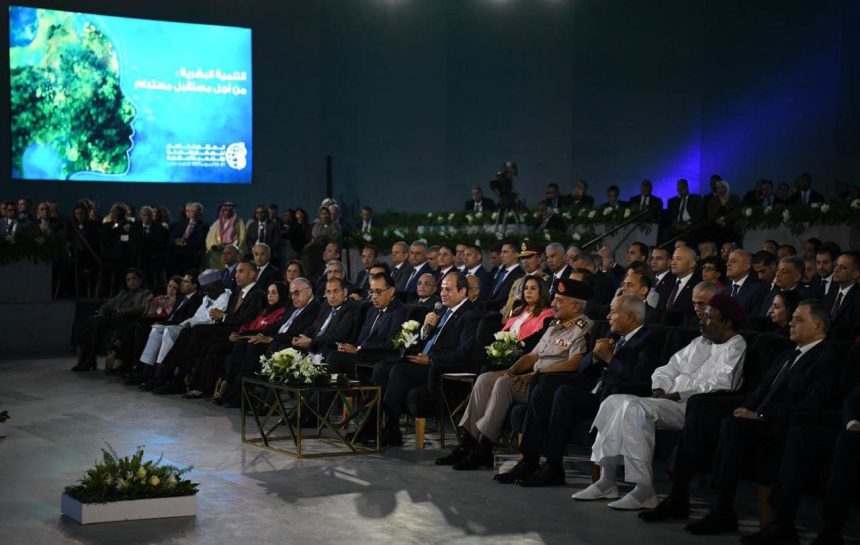Photo source: Daily News
Egyptian President Abdel Fattah Al-Sisi has ordered a thorough review of the country’s program with the International Monetary Fund (IMF) to address recent global economic shifts and challenges.
In statements made during the Global Conference on Population, Health, and Human Development on 20 October, Al-Sisi highlighted that the global economic slowdown, exacerbated by the war in Ukraine and COVID-19, has severely impacted Egypt’s fiscal performance.
He acknowledged the IMF program’s initial positive outcomes, but emphasized the need for re-evaluation in light of “new pressures”.
“We have embarked on a bold journey of economic reform, and we continue to pay the price. The program has helped stabilize key aspects of the economy, but we must be honest—external shocks have tested our resilience,” said the Egyptian President.
IMF Programme and Egypt’s Economic Landscape
In December 2022, Egypt secured a USD 3 billion loan from the IMF, underpinned by a series of structural reforms aimed at bolstering economic growth, reducing public debt, and improving fiscal transparency.
The IMF package also emphasized the need for currency flexibility and subsidy cuts, controversial measures that triggered public concerns over rising inflation and cost of living.
“We cannot ignore the pressure felt by Egyptian citizens, but the IMF program has been necessary to avoid worse outcomes, such as an economic collapse,” said Al-Sisi.
Since adopting the IMF-backed reform measures, the Egyptian pound has lost over 50 per cent of its value, and inflation has soared to above 30 per cent.
The government’s reform efforts initially led to robust GDP growth rates of six per cent in 2021, and a reduction in public debt from 102 per cent to 88 per cent of GDP.
However, with the global economic environment deteriorating, the progress has been reversed, leaving Egypt grappling with a public debt that has climbed above 90 per cent of GDP.
Continuing Investment in Key Sectors
Despite these fiscal challenges, Al-Sisi reiterated his administration’s focus on critical areas such as water management, population health, and infrastructure development.
“We have continued to invest in projects that will sustain Egypt’s long-term future, even in difficult times,” he said.
Egypt has also made strides in tackling its population growth rate, introducing initiatives that aim to reduce the number of annual births from 2.5 million to 1.6 million, a move seen as essential to alleviate pressure on public services and employment opportunities.
Public Response and Future Prospects
The IMF program has sparked ongoing debate, with some experts lauding the discipline it has imposed on Egypt’s fiscal management, while others warn that further devaluation and austerity measures could deepen social unrest.
As Egypt embarks on the review process, it will have to negotiate with the IMF over potential program adjustments that balance the country’s economic stabilization with the need to alleviate the burden on its population.
“We are in discussions to ensure that we maintain the balance between fiscal responsibility and social justice,” concluded Al-Sisi during the conference.
“The review is about fine-tuning a program that already aims to protect Egypt’s economy from external shocks and build a resilient future.”







Comments (0)